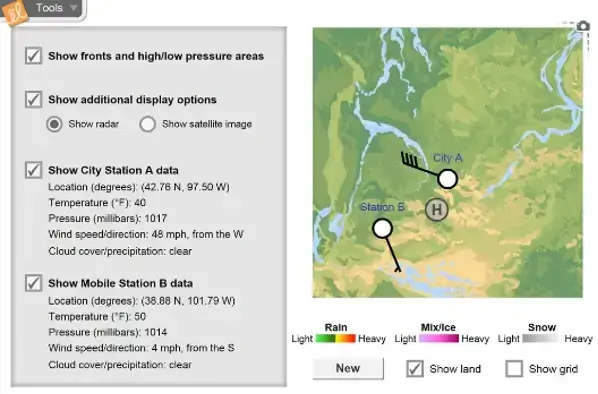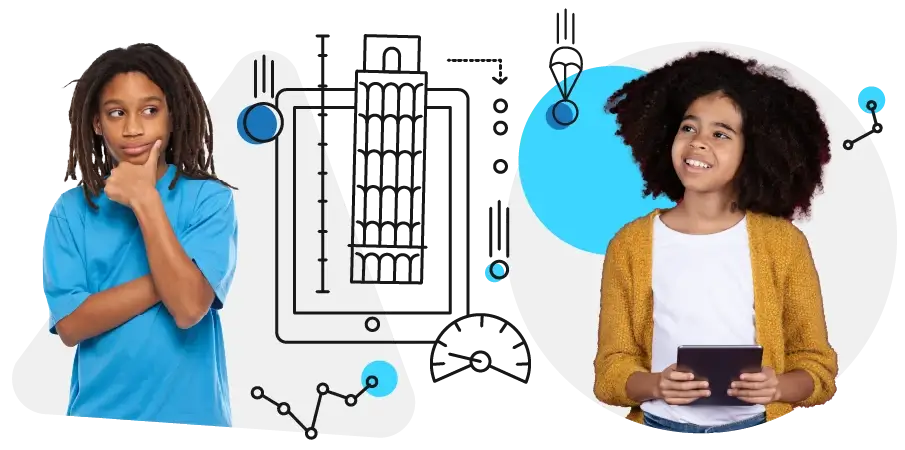
Ways to Celebrate Computer Science Education Week
Computer Science Education Week brings awareness and inspiration for the different uses of computers and technology. Take a moment to think about the ways you use tech every day. Setting the alarm on your phone. Programming the coffeemaker. Streaming a podcast in your vehicle. Presenting lessons on an interactive whiteboard. Collecting student work through a learning management system. Even planning for substitutes using edtech tools.
Computer science is a part of the fabric of daily life for adults and kids. Computer Science Education Week brings the opportunity to discuss the crucial role computers play in our lives. Celebrating Computer Science Education Week might even take that daily use and spark a passion for students in computers for extracurricular interests and even future careers.
Computer Science Week will be held from December 4-10. Why? It was intended to be held during the week of December 9, the birthday of Grace Hopper, born in 1906. Hopper, the pioneer of computer programming, invented the first compiler and was the first to use the term “bug” when talking about errors in computer programs. However, Hopper removed an actual bug (a moth!) from a computer in 1947.
What is Computer Science Education Week?
Computer Science Education Week is set aside to inspire students from kindergarten through high school to learn more about computer science. There is a focus on the equity of technology in schools and the contributions of people who study and work in the field of computer science. Computing in the Core Coalition spearheaded the first Computer Science Education Week in 2009. Tech giants like Google, Intel, and the National Science Foundation (NSF) worked together to fund the weeklong celebration.
Computer Science Education Week also emphasizes coding with the “Hour of Code,” initiated by Hadi Partovi, founder and CEO of Code.org, in 2013. Over 15 million students in 167 countries have participated. Codes tell computers what to do by writing out instructions. Every type of computer device, such as laptops, tablets, and smartphones, uses coding. Websites and apps also use coding.
Fun and educational Computer Science Education Week activities for students
Participation in Computer Science Week is meaningful because it isn’t limited to the classroom. Knowledge of computer science is a life skill. Kids use computers everywhere, from home to school to recreational activities. They play online games with their friends, investigate virtual simulations in science class, and gain math fact fluency in math. Computer Science Week highlights even more activities to engage students with technology to grow their interest in computer science classes.
Try these Computer Science Education Week ideas in your classroom.
- Host a showcase for students to share their favorite computer games and teach a lesson about why they love to play the games.
- Explore the Weather Maps Gizmo.
- Find the AI-generated images in Odd One Out.
- Let students enter coding contests and competitions or program their own rover to explore Mars.
- Write AI-generated poetry.
- Create a class website to share writings. There are several sites to try, such as WordPress and Wix.
- Design phone cases.
- Gamify math class with Reflex and Frax.
- Organize a Google CS (Computer Science) First session for your class.
- Invite the IT person for your school or district to talk with your class about jobs in the field of computer science. You might even have a parent or family member of a student who would volunteer for this.

Inspire the next generation of coders and innovators!
This generation of students are the innovators for the future of computer science and technology. They already feel comfortable using it! Make sure they develop their understanding and appreciation of computer science education and technology by choosing edtech resources and experiences to enhance their interest. Mix edtech resources with old-school strategies to help students see the benefits of both and the endless possibilities of computer science in their future schooling and careers.

If you want research-backed edtech resources to incorporate into your math and science classes, look no further than ExploreLearning. Take a trial today!
